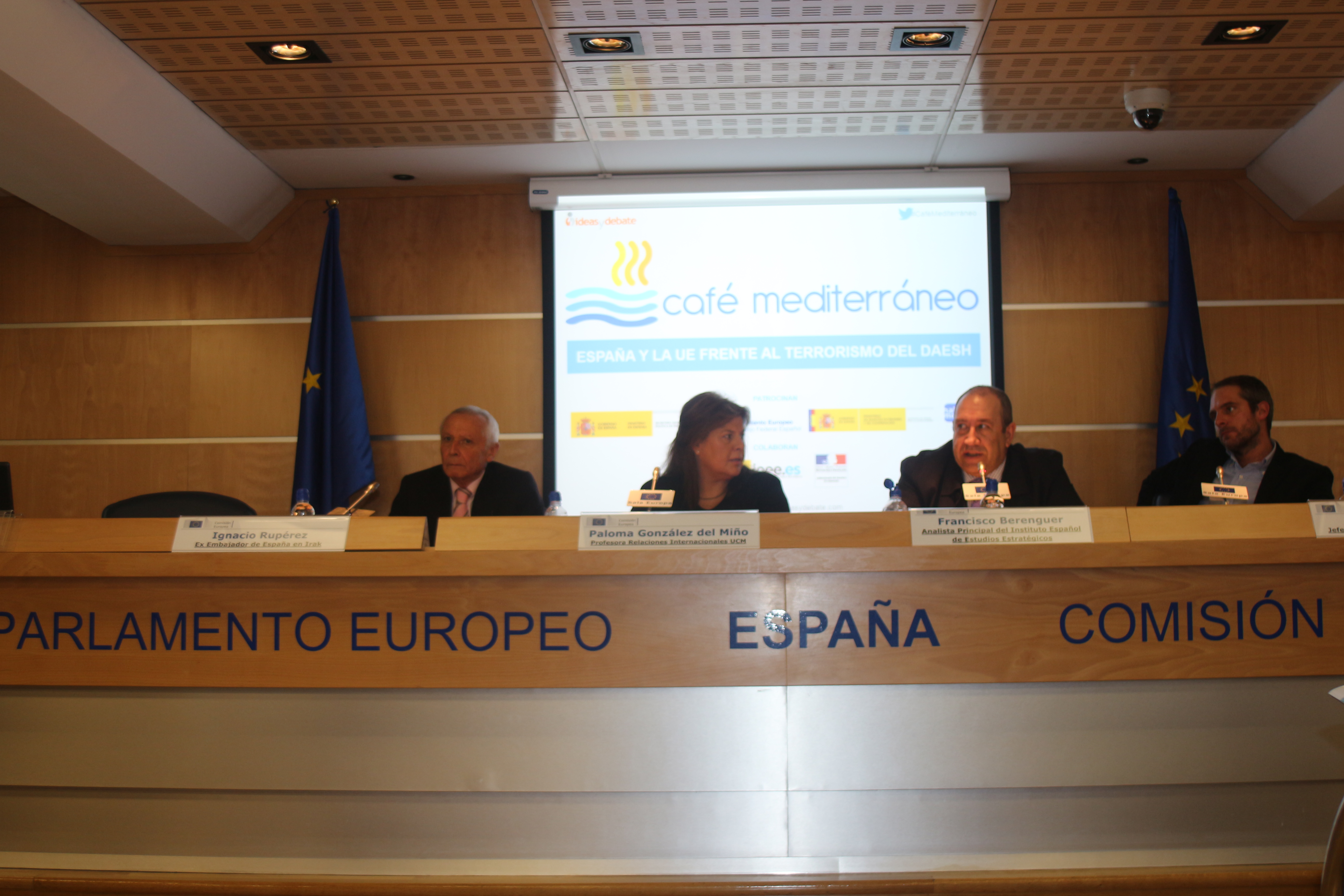Spain and the EU in the fight against ISIS

I attended to the seminar about Spain and the EU in the fight against ISIS that was celebrated in the European Commission Representation in Madrid last Wednesday, 28th October. In that talk I learned a lot of interesting information and I was able to draw out some ideas that I consider that can be useful and interesting if we apply them to the subject “Spain’s Foreign Policy”.
The creation of the ISIS is led back to the Iraqi war in which the United States took part. The threaten of the Islamic State and its spreading it is challenging the current International Relations due it is taking a major role in the political scene. Some of the major features of the Islamic State that were developed during the conference were the transnational character of the ISIS which implies external and internal cooperation and that It is a threat formed by various factors.
ISIS is considered as a real threat nowadays due to its ownership of powerful weapons (which were somehow stolen from the city of Mosul during the Iraqi war) and its ownership of the control of gas with underground structures across Turkey. One of the most important target of ISIS, according to a scholar that talked in the seminar, is to attack the nearest Sunni enemies which does not nothing to do with the attacks that were happening in Europe which have been promoted by Al Qaeda.
Spain and the European Union has trying to face terrorism since the beginning of its creation facing different kinds of development of terrorist groups. Nowadays, the EU is facing problems like the refugee crisis and the fight against radical terrorism, but in reality the EU has been facing similar problems before with strategies like the G6 and the G10 in which Spain plays an important role too.
Spain, as an individual country, has worked with terrorist defeating the terrorist group called ETA and it has provided some ideas to fight it. Some ideas created by Spanish experts were to investigate the terrorism’s way of founding, the exchange of information between countries and the idea of creating a deadline to execute measures which will contribute to a more immediate action. Furthermore, they also came up with the idea to record or register the passenger’s information or the electronic systems of the frontiers or the fight against the online terrorism which is used to recruit and spread terrorist ideas.
Huge proposals were posed during the session but there were some that especially took my attention as for example, the creation of a Common Policy of Defense which facilitate the connection and the immediate action, the negotiation between the US, Iran and Arabia Saudi with the European Union, promote bilateral agreements between countries, create a Global Strategy against terrorism and update previous agreements like the Brussels Treaty redefining European’s interests.
As we can see, there are a lot of different ideas that can deal with the current issue but, a factor that was remarkable was that any of the participants supported the bombing or the use of weapons to face the problem. They considered that that solution was useless and that the problem cannot be faced with bombings that will provoke more dead, wounded or traumatized soldiers.
As Eugenio Nasarre said, we are not defeating the ISIS because we are not aware of the dimension of the threat. And, from my point of view, If you are not able to be aware of all the factors involved in a problem you cannot find a clear solution.
Jimena González Hernando. Alumna del 2º curso del Grado de Relaciones Internacionales


